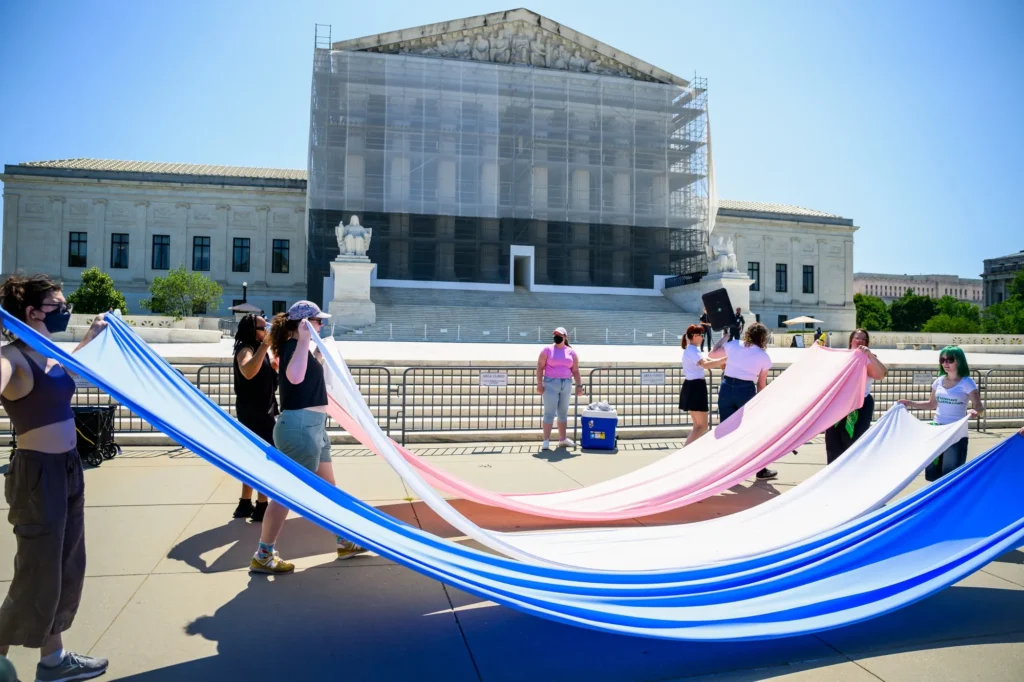The U.S. Supreme Court has agreed to hear a highly anticipated case that could reshape the national conversation around transgender athletes and their participation in girls’ school sports teams. The case, which stems from a legal battle in West Virginia, will decide whether state bans on transgender students competing in girls’ sports are constitutional.
This decision marks the first time the nation’s highest court will rule on transgender rights in sports, and its outcome is expected to have widespread implications for schools, athletic programs, and civil rights policies across the United States.
Here are the five key things to know about the upcoming case, the arguments on both sides, and what could happen next.
1. The Background: West Virginia’s 2021 Law
The case comes from West Virginia, where in 2021 the state passed a law banning transgender girls from participating on public school sports teams designated for girls. The law, known as the Save Women’s Sports Act, stated that athletes must compete in sports based on the sex assigned to them at birth.
That same year, a middle school student named Becky Pepper-Jackson, who is transgender, challenged the law in court. She wanted to join her school’s girls’ cross-country team but was told she could not because of the new law.
Her lawyers argue that the law violates her rights under Title IX, a federal law that bans sex-based discrimination in schools, as well as the Constitution’s Equal Protection Clause.
2. Why the Supreme Court Got Involved
Lower federal courts have issued conflicting rulings on similar cases across the country. Some courts have blocked enforcement of bans like West Virginia’s, while others have upheld them. Because of this legal confusion, both supporters and opponents of the law asked the Supreme Court to provide a final decision.
By agreeing to hear the case in its 2025–26 term, the Supreme Court is stepping into one of the most controversial and emotionally charged issues in modern American politics: how to balance transgender rights with fairness in girls’ sports.
This case is expected to draw national attention, with school officials, civil rights groups, athletic associations, and politicians on both sides preparing to weigh in.
3. Arguments for and Against the Ban
Supporters of the ban argue that allowing transgender girls—especially those who have gone through male puberty—to compete in girls’ sports gives them a physical advantage and threatens fairness. They say the law protects the integrity of female athletics and ensures that cisgender girls (those assigned female at birth and who identify as female) have a level playing field.
Groups like Alliance Defending Freedom, which supports the ban, argue that “biological differences matter in sports” and that these laws are not about discrimination, but about preserving fairness and safety.
Opponents, including civil rights groups like the American Civil Liberties Union (ACLU), argue that banning transgender girls from girls’ teams is discriminatory and harmful. They say it singles out transgender students and excludes them from the benefits of school sports: friendship, discipline, teamwork, and fitness.
Becky Pepper-Jackson’s legal team said in a statement:
“This case is about whether our country will continue to protect the rights of all children—including transgender children—under the law.”

4. What the Ruling Could Mean
A decision in favor of West Virginia could give states more freedom to pass and enforce laws limiting transgender participation in girls’ and women’s sports. More than 20 states already have similar laws on the books, and that number could grow if the Court upholds the ban.
On the other hand, if the Court rules in favor of Pepper-Jackson, it could strike down those state laws and strengthen federal protections for transgender students, particularly under Title IX.
Legal experts say this case will likely shape not just school sports, but also broader issues related to transgender rights in education and public life.
Whatever the outcome, the ruling will likely become a landmark moment in U.S. civil rights history—similar to past Supreme Court rulings on same-sex marriage, school segregation, and workplace equality.
5. National Reactions and What Comes Next
Reactions to the Supreme Court’s announcement have been swift and divided.
LGBTQ+ advocacy groups welcomed the Court’s decision to hear the case but stressed the importance of protecting vulnerable youth.
“No child should be banned from participating simply because of who they are,” said the Human Rights Campaign.
Meanwhile, conservative leaders and sports organizations in support of the ban say they hope the Court will uphold what they call “common-sense protections” for girls’ athletics. Some lawmakers have already promised to introduce more legislation depending on how the case is decided.
Oral arguments are expected to take place in late 2025, with a ruling likely by mid-2026. In the meantime, some school districts are putting current policies on hold until they get clearer guidance from the Court.
Final Thoughts
The Supreme Court’s decision to hear the case on transgender athletes in girls’ teams marks a defining moment for sports, education, and civil rights in America. As the legal battle unfolds, the nation watches to see how the Court balances complex issues of identity, fairness, and equality.
For now, one thing is certain: the ruling will have ripple effects for years to come, not just in locker rooms and stadiums, but in classrooms, communities, and courts across the country.
Read more – California Enacts Regulations to Control Artificial Intelligence Usage in Media






